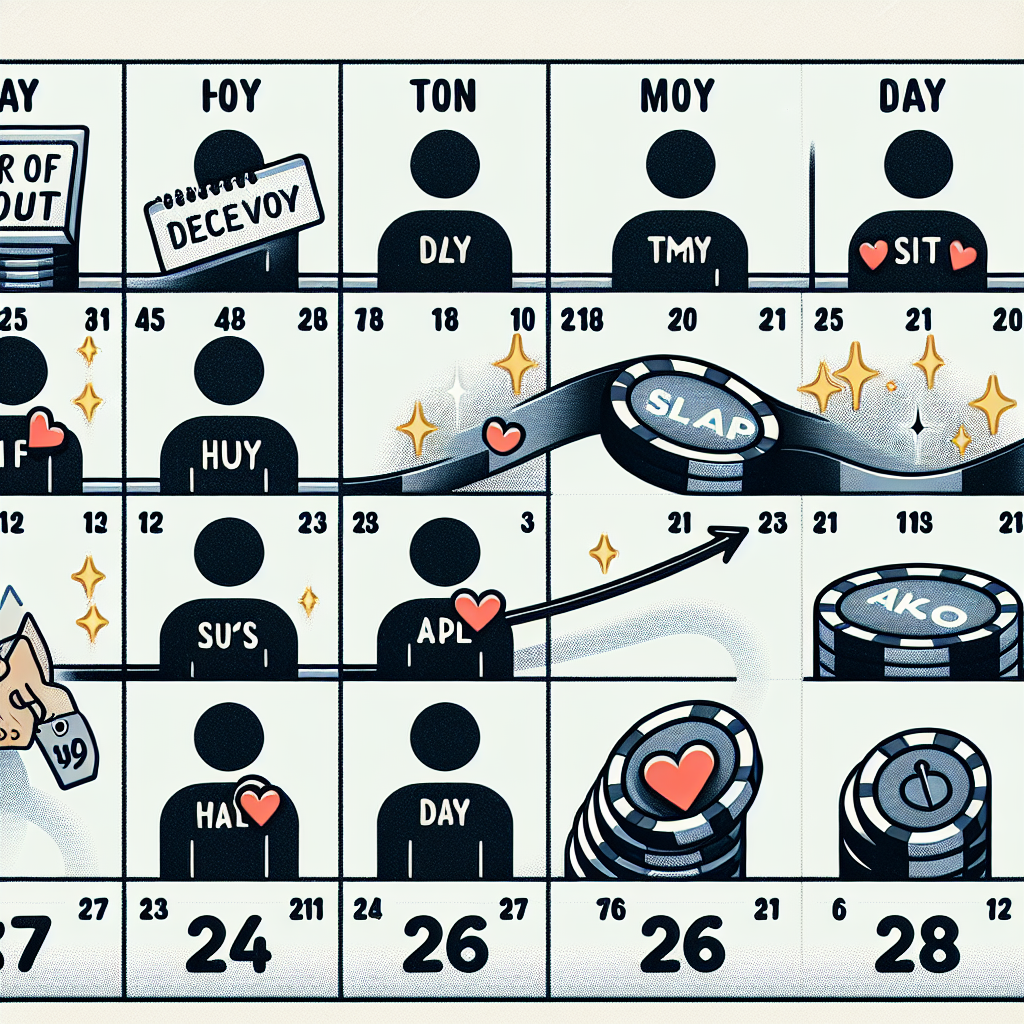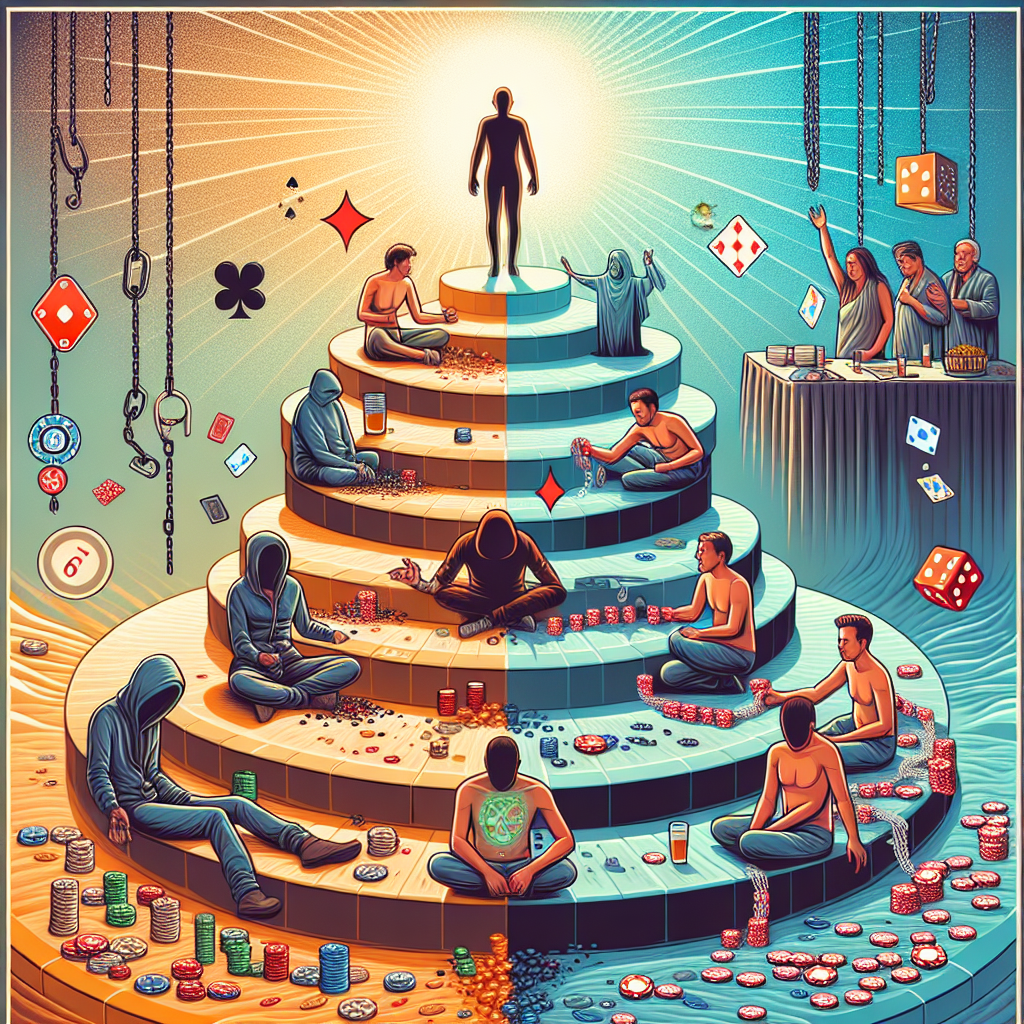-
Table of Contents

“Recovery from gambling addiction: A journey, not a timeline.”
Introduction
Gambling addiction recovery is a complex and highly individualized process that varies significantly from person to person. The duration of recovery can depend on several factors, including the severity of the addiction, the presence of co-occurring mental health disorders, the individual’s support system, and their commitment to treatment. While some individuals may experience significant improvement within a few months of starting treatment, others may require years of ongoing therapy and support to achieve and maintain recovery. It is important to recognize that recovery from gambling addiction is not a linear process and may involve periods of relapse and recommitment to treatment. Comprehensive treatment plans often include a combination of therapy, support groups, and sometimes medication, tailored to meet the unique needs of each individual.
Understanding The Timeline Of Gambling Addiction Recovery
Understanding the timeline of gambling addiction recovery is a complex yet crucial aspect for those seeking to reclaim their lives from the grip of this pervasive issue. The journey to recovery is not a one-size-fits-all process; it varies significantly from person to person, influenced by numerous factors including the severity of the addiction, the individual’s support system, and their commitment to change. While some may find their path to recovery relatively swift, others may experience a more prolonged and challenging journey. However, it is essential to remember that recovery is possible, and with the right approach, individuals can regain control over their lives.
Initially, the process begins with the recognition of the problem. This stage is often the most difficult, as it requires the individual to confront the reality of their addiction. Denial is a common barrier, but once this hurdle is overcome, the path to recovery can commence. Seeking professional help is a critical next step. Therapists, counselors, and support groups provide the necessary tools and strategies to address the underlying issues that contribute to gambling addiction. Cognitive-behavioral therapy (CBT) is particularly effective, as it helps individuals identify and change the thought patterns that lead to compulsive gambling.
As individuals progress through therapy, they begin to develop healthier coping mechanisms and strategies to manage their urges. This stage can take several months, depending on the individual’s dedication and the complexity of their addiction. During this time, it is vital to build a strong support network. Family, friends, and support groups play an integral role in providing encouragement and accountability. The presence of a supportive community can significantly enhance the recovery process, offering a sense of belonging and understanding that is crucial for long-term success.
Transitioning from therapy to maintaining recovery is another critical phase. This period involves applying the skills and strategies learned in therapy to real-life situations. It is not uncommon for individuals to experience setbacks during this time. Relapses can occur, but they should not be viewed as failures. Instead, they are opportunities to learn and strengthen one’s resolve. The key is to remain committed to the recovery process and to seek help when needed. Continuous engagement with support groups and ongoing therapy sessions can provide the necessary reinforcement to stay on track.
Long-term recovery is an ongoing process that requires vigilance and dedication. It is essential to recognize that recovery does not have a definitive endpoint. Instead, it is a lifelong commitment to maintaining a healthy and balanced lifestyle. Regular self-assessment and mindfulness practices can help individuals stay attuned to their triggers and prevent relapse. Additionally, setting realistic goals and celebrating small victories can provide motivation and a sense of accomplishment.
In conclusion, the timeline for gambling addiction recovery is highly individualized and can range from several months to years. The journey is marked by various stages, each requiring different levels of effort and support. While the path may be challenging, it is important to remain hopeful and persistent. With the right resources, a strong support system, and a commitment to change, individuals can overcome gambling addiction and lead fulfilling, addiction-free lives. The road to recovery is not linear, but every step forward is a testament to one’s strength and resilience.
Factors Influencing The Duration Of Gambling Addiction Recovery
The journey to recovery from gambling addiction is a deeply personal and often complex process, influenced by a myriad of factors that can significantly impact the duration of recovery. Understanding these factors can provide hope and clarity for those struggling with gambling addiction and their loved ones, as they navigate the path to a healthier, addiction-free life.
One of the primary factors influencing the duration of gambling addiction recovery is the severity of the addiction itself. Individuals who have been gambling for a longer period or who have developed more severe gambling habits may find that their recovery process takes longer. This is because deeply ingrained behaviors and thought patterns can be more challenging to change. However, it is important to remember that no matter how severe the addiction, recovery is always possible with the right support and commitment.
Another critical factor is the presence of co-occurring mental health conditions. Many individuals with gambling addiction also struggle with issues such as depression, anxiety, or substance abuse. These co-occurring conditions can complicate the recovery process, as they often need to be addressed simultaneously. Integrated treatment approaches that address both the gambling addiction and any underlying mental health issues can be particularly effective, though they may also require a longer time commitment.
The support system available to an individual can also play a significant role in the duration of their recovery. A strong network of family, friends, and support groups can provide the encouragement and accountability needed to stay on track. Conversely, a lack of support or exposure to environments that trigger gambling behaviors can hinder progress. Engaging in therapy, whether individual or group-based, can also be a crucial component of a robust support system, offering professional guidance and a safe space to explore the underlying causes of the addiction.
Personal motivation and readiness for change are equally important. Recovery from gambling addiction is a voluntary process that requires a genuine desire to change. Individuals who are highly motivated and committed to their recovery are more likely to engage fully in treatment and make the necessary lifestyle changes. This intrinsic motivation can significantly shorten the recovery timeline, as it drives consistent effort and resilience in the face of setbacks.
The type of treatment and interventions used can also influence the duration of recovery. Cognitive-behavioral therapy (CBT), for example, has been shown to be particularly effective in treating gambling addiction by helping individuals identify and change harmful thought patterns and behaviors. Other therapeutic approaches, such as motivational interviewing or mindfulness-based therapies, can also be beneficial. The effectiveness of these treatments can vary from person to person, and finding the right combination of interventions may take time.
Lastly, the individual’s ability to develop and maintain healthy coping mechanisms is crucial. Gambling often serves as a maladaptive coping strategy for dealing with stress, boredom, or emotional pain. Learning and practicing healthier ways to cope with these feelings can be a transformative part of the recovery process. This might include engaging in physical activities, pursuing hobbies, or developing relaxation techniques. The time it takes to establish and integrate these new habits can vary, but they are essential for long-term recovery.
In conclusion, the duration of gambling addiction recovery is influenced by a range of factors, including the severity of the addiction, co-occurring mental health conditions, the support system, personal motivation, the type of treatment, and the development of healthy coping mechanisms. While the journey may be challenging and the timeline uncertain, it is important to remain hopeful and persistent. With the right support and a commitment to change, recovery is not only possible but achievable, leading to a more fulfilling and balanced life.
Q&A
1. How long does gambling addiction recovery typically take?
– The duration of gambling addiction recovery varies widely depending on the individual, the severity of the addiction, and the type of treatment. It can take anywhere from several months to several years, and ongoing support may be necessary.
2. Are there specific milestones in gambling addiction recovery?
– Yes, common milestones include the initial cessation of gambling, developing coping strategies, rebuilding relationships, and achieving long-term financial stability. Each milestone can take different amounts of time for different individuals.
Conclusion
The duration of gambling addiction recovery varies significantly among individuals and depends on several factors, including the severity of the addiction, the presence of co-occurring mental health disorders, the individual’s commitment to recovery, and the type of treatment received. Recovery is often a long-term process that can take months or even years, and it typically involves ongoing support and relapse prevention strategies. While some individuals may experience significant improvement within a few months, others may require a more extended period to achieve and maintain recovery.



